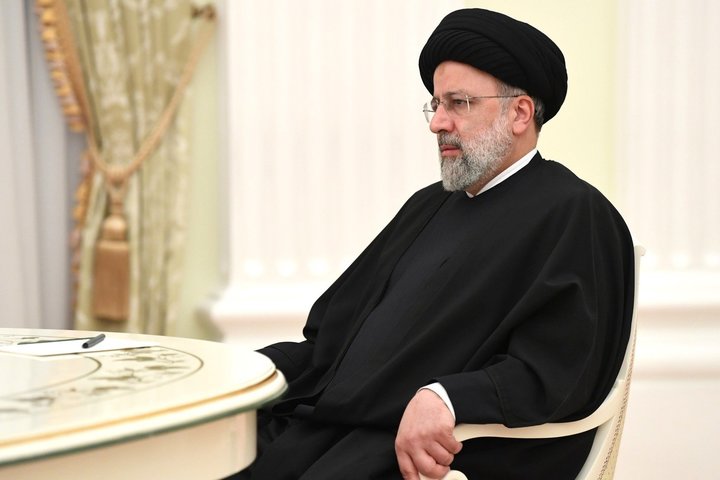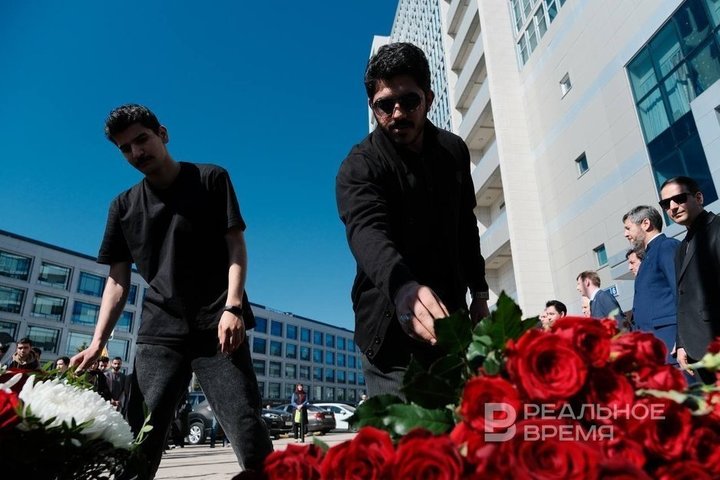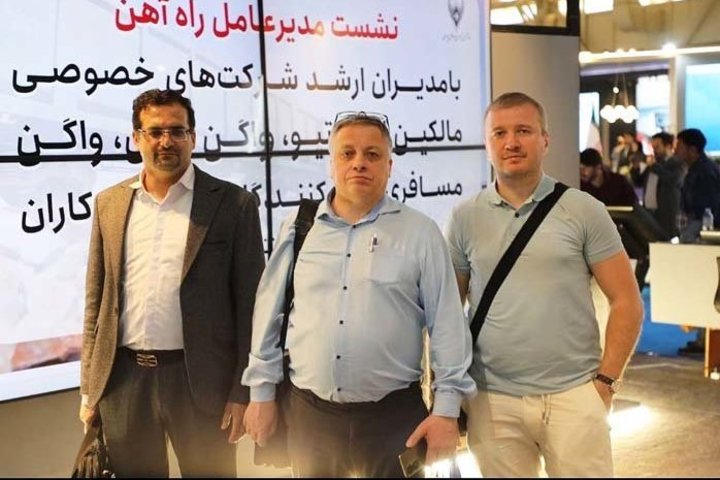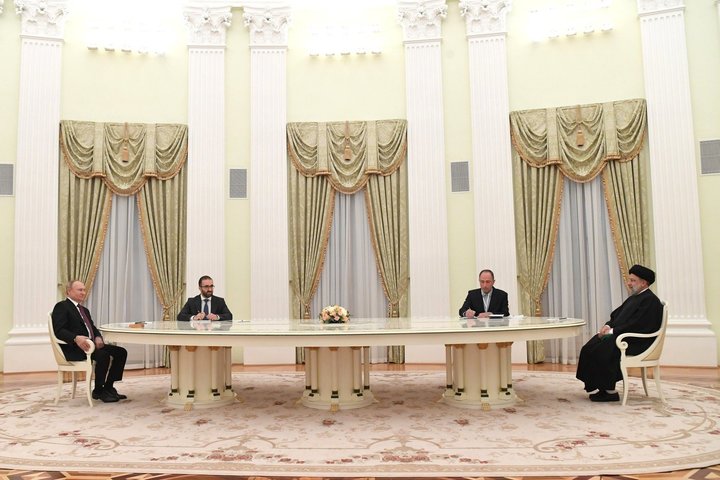‘Conservatives will promote Mokhber or Ghalibaf after Raisi's death’
What the death of the Iranian president is going to change for Russia and who can become the new leader of the country

The tragic death of the Iranian president and foreign minister has caused a lot of concern and a lot of talk about what consequences it can lead to. Today, stability is associated with Iranian politics not only in the Middle East, but also in Asia, and in the whole world. What the tragedy of Iran is going to change for Russia and who will be put in place of Ebrahim Raisi — details in the material of Realnoe Vremya.
“An irreparable loss for all friends of Iran”
Iran officially confirmed the death of President Ebrahim Raisi and several other high-ranking officials who were returning with him by helicopter after negotiations with Azerbaijan on 20 May. The country has declared five days of mourning. The leaders of many countries, including Russia, expressed their condolences. People are bringing flowers to the Consulate General of Iran in Kazan.
The rais of Tatarstan, who also sent a telegram of condolences, was personally acquainted with Mr. Raisi. “This is a huge and irreparable loss for the Iranian society, for all friends of Iran around the world," he stressed. Rustam Minnikhanov pointed out that the deceased paid great attention to the development of Tatarstan-Iranian cooperation. Back in February, during his visit to Iran, the parties discussed cooperation in the fields of mechanical engineering, petrochemistry, energy, food and pharmaceutical supplies, and trade development issues.
Tatarstan companies implemented projects in Iran over the years. Currently, our republic is developing cooperation with the Iranian company Darik, a partner of KAMAZ PJSC, and is showing great interest in developing energy projects with Mapna, as well as in the automotive industry — with the largest Iranian manufacturer Iran Khodro. The trade turnover between Tatarstan and Iran increased 1.5 times in the first 9 months of 2023 compared to 2022 and amounted to $162 million.

“Conservatives will promote Mokhber or Ghalibaf. Ghalibaf is much more authoritative”
Recent events in Iran caught Alexander Sharov, CEO of RusIranExpo Group, in this country, where international exhibitions of the railway industry and medical equipment are currently taking place. According to him, despite the tragedy, the situation in the country remains quite calm.
“We are driving around Tehran and the provinces of Iran, everything is fine and everything is calm. Yes, the festive events have been cancelled due to mourning, but the exhibitions continue to work, the situation is working. We are currently at the Turkmenistan-Iran border post, and there is also an absolutely working atmosphere here. Certainly, there are photographs of Ebrahim Raisi in mourning frames, but everything is fine," he shared his impressions.
As for cooperation with Russia, in particular, on export issues, the expert is confident that “nothing will change”. Over the past two years, several logistics conferences have been held in Iran under the leadership of Alexander Sharov, the active participants of which were representatives of Russia, CIS countries and Iran working on the route of the international North-South transport corridor. The group of companies itself, headed by the expert, also helps Russian enterprises enter the Iranian market.
“As it is, everything is quiet in Tehran and in the provinces of Iran. The president in Iran is like our prime minister. Moreover, no one liked the former prosecutor. After Raisi's death, the conservatives will promote another one — Mokhber or Ghalibaf. Ghalibaf is much more authoritative than Raisi and smarter. Maybe that's why they didn't move him," Sharov believes.

“None of the competing reformist structures will be allowed to participate in the elections”
Maxim Alontsev, Associate Professor at the Higher School of Economics and Iranist, agrees with his colleague. According to him, at the moment it seems that the death of Raisi can hardly lead to any large-scale changes in Iranian politics, both domestic and foreign:
“Yes, Raisi was president and had fairly broad powers, but neither in the structure of power nor in its perception by Iranians, he was not the main actor and was rather in the shadow of supreme leader Ali Khamenei, both formally and in fact. It is Khamenei who is at the head of the Iranian political system created with his direct participation, and Raisi was perceived by many as a technical figure and absolutely loyal to the supreme leader.
Of course, the death of several high-ranking officials will become a source of tension for the Iranian political system, which over the years has less and less demonstrated its previously characteristic flexibility, the expert is convinced. But this tension, it seems to him, is unable to upset her balance.

According to him, some changes are possible in the foreign policy course, but they are more likely related to the death not of Raisi, but of Hossein Amir-Abdollahian. At the same time, anti-Zionism and anti-Americanism will certainly remain unshakable pillars of Iranian foreign policy, but it is worth paying attention to relations with Arab countries (in particular, with Saudi Arabia). “Amir-Abdollahian was an expert on Arab affairs and, after becoming minister, paid great attention to this particular area. On the one hand, he was responsible for coordinating the work of the Shiite crescent (Hamas, Hezbollah, Houthis). On the other hand, he acted as the architect of the reset of relations with Saudi Arabia (diplomatic relations between the countries were restored in 2023) and a proponent of closer cooperation with the Gulf monarchies," the speaker said, adding that this cooperation was made possible, among other things, thanks to Amir-Abdollahian's personal relations with partners in the region, therefore, in this direction it is quite possible it will be possible to see changes.
“It is hardly worth waiting for changes in the Russian direction of Iranian foreign policy. Mohammad Mokhber, who, like the late Raisi, established good relations with representatives of the Russian power elite and participated in Russian-Iranian negotiations at various levels more than once, will perform the duties of the president before the elections, the expert believes.

According to him, since both sides are interested in expanding cooperation at the moment, no major changes should be expected after the elections either. Changes in this area can take real shape only in the case of a fundamental revision of the entire Iranian foreign policy doctrine, and such a revision is possible as a result of larger-scale shocks.
“Everything signed in Kazan will be in force”
In turn, Yevgeny Satanovsky, a Russian Orientalist and economist, one of the leading experts in the field of politics and economics of Israel, as well as other Middle Eastern countries, noted that Iran periodically becomes an important partner for Russia, but then sometimes relations change, because Europe is more attractive to Iran than Russia.
Economist, member of the Supervisory Board of the Guild of Financial Analysts and Risk Managers Alexander Razuvaev does not expect major changes in Iran's foreign policy in connection with the death of Raisi: “Because the government there is still religious. There are only two religious states in the world — the Vatican and Iran. Accordingly, Iran will continue its course. I think that cooperation with Russia will not suffer in any way. It is clear that they are talking about the assassination attempt on the Crown Prince of Saudi Arabia, but we do not know whether the Americans and Israel really worked there or not. I'm inclined to think that in this case no, that poor visibility is to blame.”
However, the interlocutor of the publication believes that it is impossible to exclude a completely different version of events. Therefore, “in any case, we need to strengthen the protection of our top officials, and Alexander Grigoryevich Lukashenko should be more careful," Razuvaev says. But, according to him, the aggravation of relations is unlikely to happen, although they are difficult. As for relations with Russia, the expert believes that cooperation will continue:

“Tatarstan, of course, may also suffer”
Meanwhile, Russian political expert Ilya Grashchenkov believes that the events in Iran may have a negative impact on business relations with Russian regions: “The death of Ebrahim Raisi risks affecting many Russian-Iranian projects.” After our country had to “redraw the map of potential foreign partners in many ways” in 2022, Iran took a special place on the new map.
“Raisi's death, obviously, on the one hand, accelerates the Iranian transit of power, on the other hand, it is unlikely to entail radical changes in the political course, because the center of strategic decision-making is located elsewhere. However, the inevitable clan reshuffles and the upcoming period of political turbulence, which risks dragging on for at least several months, can put many joint projects with the regions of Russia, that are being implemented or are just getting ready to start, on hold," he noted.
According to him, business cooperation with Iran “will be, if not completely frozen, then largely suspended” and a change in the structure of international cooperation “may be a blow to the regions of Russia”:
